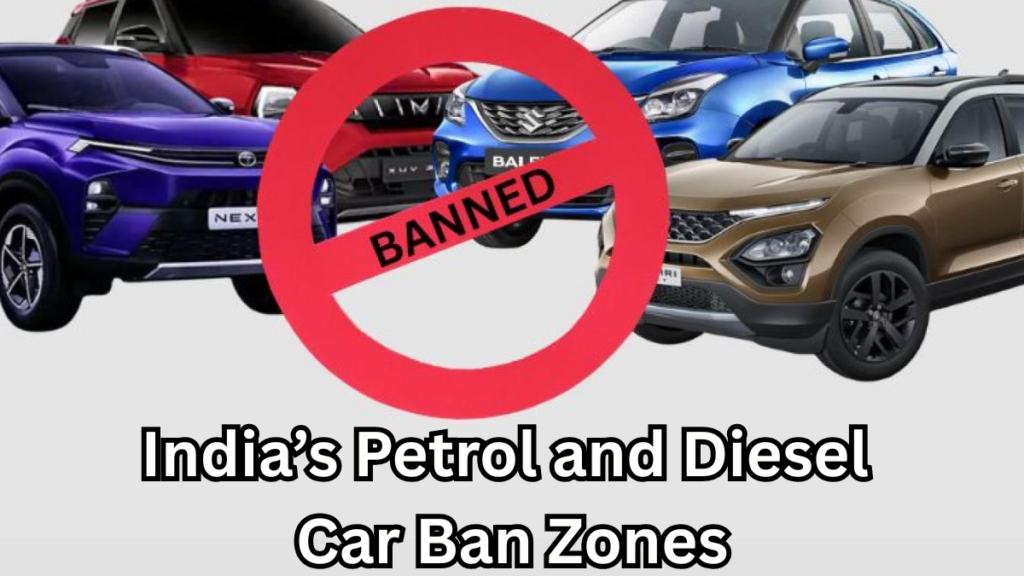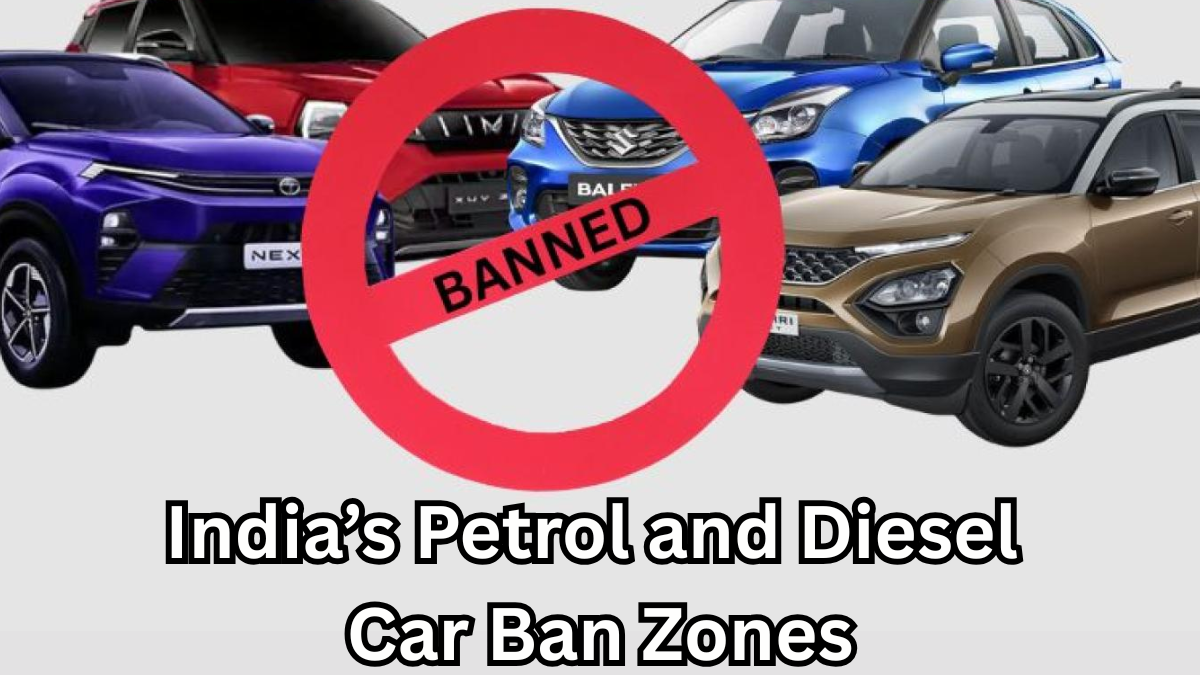As the world moves towards a cleaner and greener future, India is stepping up by creating green zones to reduce pollution and curb its dependence on fossil fuels. Starting in 2025, several Indian cities will introduce petrol and diesel ban zones, signaling a major shift towards sustainable transportation.
Let’s dive into the list of cities, deadlines, and what this means for commuters, travelers, and car owners in India.

Why Is India Banning Petrol and Diesel Vehicles?
The rise in pollution levels, especially in metro cities, has triggered a growing urgency for environmental reforms. The central and state governments are taking firm steps to reduce vehicular emissions by promoting electric vehicles (EVs) and designating fuel ban cities.
Key Reasons Behind the Fuel Ban:
-
Alarming levels of air pollution in metro and tier-1 cities
-
Commitments to global climate change goals
-
Encouragement for EV adoption and eco-friendly mobility
-
Protection of public health and environmental sustainability
List of Petrol and Diesel Ban Zones in India – 2025
Here’s a table listing the cities that will implement petrol and diesel ban zones in India 2025, along with their respective deadlines.
| City | Deadline for Ban | Zone Type | Vehicles Affected |
|---|---|---|---|
| New Delhi | January 1, 2025 | Entire NCR Green Zone | All petrol and diesel vehicles |
| Mumbai | March 2025 | Marine Drive, Fort areas | Older petrol/diesel cars (15+ yrs) |
| Bengaluru | April 2025 | CBD & MG Road | Commercial petrol/diesel vehicles |
| Chennai | May 2025 | Marina Beach Zone | Petrol and diesel private vehicles |
| Hyderabad | June 2025 | HITEC City | High-emission diesel vehicles |
| Chandigarh | July 2025 | Sector 17 & Rose Garden | Petrol vehicles older than 10 yrs |
These green zones in India are being created to limit air pollution in congested and sensitive regions of each city.
What Vehicles Will Be Allowed?
While petrol and diesel vehicles will be restricted in specific zones, the following types of vehicles will still be permitted:
-
Electric vehicles (EVs)
-
CNG-powered vehicles
-
Hybrid vehicles (in some cases)
-
Public transport vehicles adhering to BS6 standards
-
Emergency services (ambulances, fire trucks, etc.)
How to Prepare for the 2025 Fuel Ban?
If you live or commute in any of the fuel ban cities, here are a few things you can do:
-
Switch to an electric or CNG vehicle before 2025
-
Check vehicle age limits and emission standards
-
Avoid driving in restricted zones during peak ban hours
-
Plan public transportation routes if alternatives are not viable
-
Explore government EV incentives and subsidies for purchasing eco-friendly vehicles
Long-Term Impact of Petrol Diesel Ban Zones in India 2025
The introduction of these petrol diesel ban zones in India 2025 is just the beginning of a broader national strategy. These bans are expected to:
-
Encourage green commuting habits
-
Reduce urban air pollution by a significant margin
-
Boost the local EV market and clean tech industry
-
Create safer, quieter, and cleaner public spaces
FAQs
1. What happens if I drive a petrol or diesel vehicle into a green zone in India in 2025?
Depending on the city, violators may face fines, vehicle impoundment, or digital tracking penalties under smart traffic systems.
2. Are two-wheelers affected by the 2025 fuel ban in cities?
Some cities may restrict older two-wheelers running on petrol, especially if they don’t meet BS6 standards. Always check local guidelines.
3. Will tourists be allowed to drive petrol or diesel rental cars in green zones?
In most cases, tourists will need to use electric or CNG-based rentals. Temporary entry passes may be issued for non-compliant vehicles, but restrictions will apply.
4. Is this fuel ban permanent?
Yes, once a green zone is enforced, the restrictions are meant to be long-term to maintain cleaner air and sustainable urban development.
Final Thoughts
India’s bold move to establish petrol and diesel ban zones in 2025 marks a turning point in its environmental roadmap. With green zones in India spreading across major cities, it’s clear that the push toward electric and clean mobility is no longer optional—it’s the future.
Click here to learn more
Sachin is a dedicated writer specializing in education, career, and recruitment topics, delivering clear and actionable insights to empower readers.
